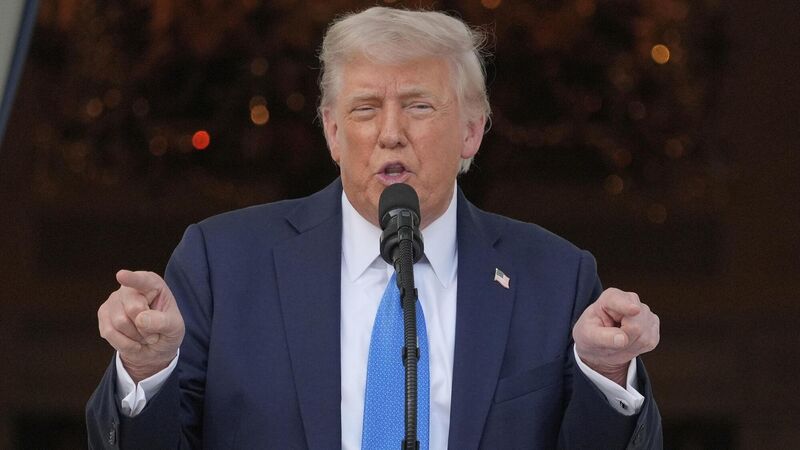Devil in the detail as Trump's 'revenge tax' playing with fire

US president Donald Trump speaking on the South Lawn of the White House this week. Under sweeping tax reforms announced by Mr Trump, US Congress would empower his administration to impose tax hikes on foreign residents and companies that do business in the US. Picture: AP Photo/Alex Brandon
It has been billed as US president Donald Trump’s ‘revenge tax’: a provision in his 'big, beautiful bill' granting power to retaliate against countries that impose special digital service taxes on large US technology companies like Amazon and Alphabet.
Under the sweeping tax reforms announced by Mr Trump last month, the US Congress would empower his administration to impose tax hikes on foreign residents and companies that do business in the US. The US Constitution gives Congress, not the president, the power to decide on taxes and spending.











